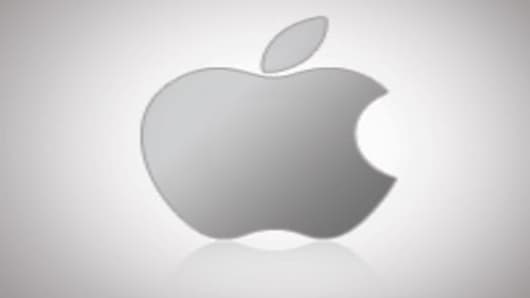Apple the company, and not an individual employee, initiated the investigation into a missing iPhone prototype that found its way onto the Internet, according to the search warrant unsealed in this case earlier this morning.
The details confirm a story we reported in April soon after that search warrant was served.
Talk about high drama in the world of high tech.
The execution of the search warrant touched off a firestorm of media controversy, along with a PR nightmare for Apple. Law enforcement broke down the door at the home of Gizmodo blogger Jason Chen, confiscating his computers in connection with the missing Apple iPhone prototype that found its way onto the Internet.
The judge in this case, Clifford Cretan, was the original judge who approved the search warrant. He ruled this morning that there was no need to protect the investigation or the identities of the people involved since the public already knew who the Apple employee was who lost the phone, and who the person was who found it and ultimately sold it to Gizmodo. The Gawker Media Web site then posted images of the phone on its Gizmodo Web site.
In an interview with CNBC, deputy district attorney Chris Feasel said he was disappointed by the ruling but that his office would abide by it, with plans to release the search warrant by Friday afternoon. He also confirmed that it was Apple that called police to report the phone was stolen, which set the investigation in motion. Feasel also says that instead of investigating this case as a stolen property crime, it was referred to the county's REACT high tech crimes unit, or Rapid Enforcement Allied Computer Team, as a trade secrets case.
The attorney representing the media, including Wired.com, C/Net, Los Angeles Times, California Publishers Association, says the main issue is what information was given to the judge in the first place to get him to issue the warrant. Was this a trade secrets case? Stolen property? What information was given to the police? All of those details will come out when the warrant is released publicly.
Another key issue: Was Chen identified to the judge as a "journalist," or merely an individual? It's a key question because of California's Shield Law which supposedly protects reporters from searches like this. More broadly, this case could try to answer whether bloggers are afforded the same rights and protections as more traditional journalists afforded under the First Amendment. Another issue the courts might have to decide in connection with this case is whether a blogger's home is an extension of his office, and therefore considered a "newsroom," which would also be protected against law enforcement searches, unless some criminal activity had been determined ahead of time.
The search warrant should disclose all these details.
Feasel also confirmed that investigators had not yet looked at Chen's computers, and will wait to do so until the sticky issues of how a journalist's rights extend to bloggers are worked out.
Meantime, while no charges have yet been filed in this case, Feasel tells CNBC he's confident charges will be filed sooner than later, but didn't offer specifics as to which charges would be filed, or even against whom they might be filed.
Apple did not return phone calls seeking comment.
UPDATE: In the search warrant, investigators are clearly identifying the single suspect in this case as Brian Hogan, the individual who found, and later sold, the prototype iPhone to Gizmodo.
Interestingly, blogger Jason Chen and the Web site Gizmodo are not characterized as suspects, that investigators believed they could find evidence in Chen's computers confirming Hogan's involvement in the case.
Also interesting, for the first time, it is confirmed that Steve Jobs himself contacted the folks at Gizmodo to ask that the phone be returned.
Finally, another fact in this case: Investigators say Hogan claimed he was paid $8,500 for the prototype phone, and that Gizmodo would pay him a bonus once the new iPhone was officially unveiled by Apple. Gizmodo has reported that sum it paid for the phone totaled $5,000.


